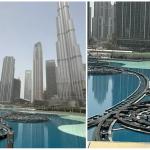In a world increasingly focused on Gross Domestic Product (GDP) and economic growth, the United Arab Emirates (UAE) has embarked on a remarkable and arguably pioneering journey: prioritizing Gross National Happiness (GNH). While it might sound like a philosophical ideal, for the UAE, well-being is a quantifiable and achievable national goal, systematically integrated into government policy, urban planning, and public services. This proactive, data-driven approach to "engineering" happiness for its residents – both citizens and expatriates – marks a unique chapter in modern governance, making the UAE a compelling case study in holistic national development.
This isn't just about feel-good campaigns; it's a strategic, top-down mandate to create an environment where individuals can thrive, feel secure, and experience a high quality of life. The "Happiness Agenda" is a testament to the UAE's visionary leadership, particularly that of His Highness Sheikh Mohammed bin Rashid Al Maktoum, Vice President and Prime Minister of the UAE and Ruler of Dubai, who famously stated, "Our goal is not to have the biggest GDP, but the biggest GNH."
The Genesis of a Grand Vision: From Concept to Cabinet
The formalization of the happiness agenda began with several foundational steps:
- The Ministry of Happiness (and now Well-being): In February 2016, a groundbreaking move saw the appointment of the world's first Minister of State for Happiness (later expanded to include Well-being). This signaled a serious commitment at the highest level of government, making happiness a portfolio with policy-making power. The minister's role is to align government policies and services to foster social good and satisfaction across all sectors.
- National Programme for Happiness and Well-being: This program, launched shortly after the ministry, outlined a comprehensive framework to embed happiness and well-being as a way of life in the UAE. Its objectives include developing policies, programs, and incentives that align with government plans, promoting well-being as a lifestyle, and creating benchmarks and tools to measure happiness.
- Dubai's Happiness Agenda: Spearheaded by Smart Dubai Office (now Digital Dubai), the city of Dubai specifically launched its "Happiness Agenda" in 2016. Its mission: "to create happiness, by embracing technology innovation — making Dubai the most efficient, seamless, safe and impactful experience for residents and visitors." This agenda firmly rooted happiness in the smart city concept, leveraging technology to enhance daily experiences.
These initiatives underscored a fundamental belief: that government's ultimate purpose is to serve its people and enhance their lives, moving beyond mere economic prosperity to embrace human flourishing.
Quantifying Contentment: Measuring What Matters
A central tenet of the UAE's approach is that what gets measured, gets managed. To truly "engineer" happiness, one must first understand and quantify it. The UAE employs various methods to gauge the sentiment of its population:
- The Happiness Meter: Launched by H.H. Sheikh Mohammed Bin Rashid Al Maktoum in 2014, this innovative initiative revolutionized public service assessment. Digital "Happiness Meters" are deployed at thousands of government service touchpoints – from customs desks and government offices to online portals. Users simply tap a green, yellow, or red smiley face to express their satisfaction with the service they just received. This real-time feedback system provides invaluable data, allowing government entities to instantly identify pain points, address issues, and continuously improve service delivery. The data is aggregated, analyzed, and often publicly shared, fostering a culture of accountability and service excellence. By 2018, Smart Dubai reported an average happiness rating of 90% across government services.
- National Wellbeing Observatory: As part of the National Strategy for Wellbeing 2031, the establishment of this observatory is crucial. It collects and monitors a wide range of wellbeing indicators, including physical health, mental health, housing conditions, social connections, and satisfaction with public services. This data-driven approach supports evidence-based policy-making, allowing the government to track progress, identify areas for improvement, and fine-tune initiatives.
- Global Happiness Reports: The UAE actively participates in and often performs strongly in international benchmarks like the UN World Happiness Report. While these reports use various factors (GDP per capita, social support, healthy life expectancy, freedom, generosity, perceptions of corruption), the UAE's consistent high ranking, especially within the Arab region, validates its internal efforts. For instance, the UAE ranked 22nd globally in the World Happiness Report 2024 (up from 26th in 2023) and consistently ranks first among Arab nations, with its senior citizens often reported as the happiest group.
Engineering Joy: Strategies in Action
The "engineering" aspect of the Happiness Agenda refers to the deliberate design and implementation of policies, services, and infrastructure aimed at enhancing well-being across various facets of life:
- Seamless Government Services: Recognizing that bureaucracy can be a significant source of frustration, Dubai has heavily invested in digital transformation to make government services intuitive, efficient, and accessible. Initiatives like Smart Dubai and the Dubai Paperless Strategy have digitized hundreds of government services, allowing residents and visitors to complete transactions online or via mobile apps. This reduces waiting times, simplifies processes, and significantly enhances convenience, directly contributing to a sense of ease and satisfaction. Services are increasingly unified and personalized, aiming for a "one-stop shop" experience.
- Urban Planning for Well-being: The design of the city itself is paramount. The Dubai 2040 Urban Master Plan explicitly aims to enhance people's happiness and quality of life. This involves:
- Doubling Green and Leisure Areas: Increasing parks, gardens, and recreational spaces promotes physical activity, mental relaxation, and social interaction.
- Enhancing Walkability and Sustainable Mobility: Creating pedestrian-friendly pathways, cycling tracks, and efficient public transport encourages active lifestyles and reduces stress associated with commuting.
- Developing Integrated Communities: Designing neighborhoods with easy access to amenities, schools, healthcare, and recreational facilities fosters a sense of belonging and convenience.
- Preserving Natural Areas: Designating 60% of the emirate as nature reserves and rural natural areas provides vital ecological balance and opportunities for connection with nature.
- Prioritizing Mental Health: Recognizing the critical link between mental health and overall well-being, the UAE government launched the National Policy for the Promotion of Mental Health in 2017. This multi-sectoral framework aims to enhance mental health services to global standards. Initiatives include:
- Reducing Stigma: Public awareness campaigns to destigmatize mental illness.
- Integrated Care: Developing comprehensive mental health services, from outpatient clinics to community support and rehabilitation.
- Workplace Mental Health Guides: Providing employers with resources to create mentally healthy work environments.
- Digital Solutions: Exploring technologies like virtual reality for therapy and support.
- Education for Happiness: The UAE is integrating principles of happiness and positive psychology into its education system. Some schools have begun to explore "Happiness Curriculums" that focus on developing emotional intelligence, mindfulness, social-emotional learning, critical thinking, and empathy. The aim is to equip younger generations with the emotional and social skills necessary for resilience and well-being in a complex world, going beyond traditional academic subjects.
- Workplace Happiness and Employee Well-being: The government actively promotes a culture of happiness within its own entities and encourages the private sector to follow suit. Initiatives include:
- Chief Happiness and Positivity Officers (CHPOs): Appointing dedicated CHPOs within government bodies to coordinate well-being initiatives.
- Employee Engagement Programs: Allocating time for happiness-related activities, establishing happiness councils, and fostering positive work environments.
- Progressive Leave Policies: Recent policies like extended paid marriage leave for Emirati government employees demonstrate a focus on work-life balance and family values.
The Impact: A Global Model of Human-Centric Governance
The tangible results of the Happiness Agenda are evident. Beyond its impressive rankings in global happiness reports, the UAE has cultivated a reputation as a highly desirable place to live, work, and visit. High satisfaction rates with government services underscore the efficacy of its tech-driven approach to public administration. The clean, safe, and well-maintained urban environment, coupled with a diverse and tolerant society, contributes significantly to residents' perceived quality of life.
While "engineering" happiness can sometimes draw philosophical debate regarding individual autonomy and genuine contentment, the UAE's approach is firmly rooted in providing the enabling conditions and infrastructure for well-being. It is about removing friction points, ensuring security, offering opportunities, and creating spaces where people can flourish.
The Future of Well-being: Towards National Strategy 2031
The UAE's commitment to happiness is not static. The National Strategy for Wellbeing 2031 builds on earlier successes, aiming to make the UAE a world leader in quality of life through a holistic framework covering individuals, society, and the nation. Its objectives include promoting healthy lifestyles, supporting mental health, encouraging positive thinking, strengthening family ties, and creating high-quality living environments.
This ongoing commitment to well-being demonstrates a mature understanding that national progress is not solely measured by economic indicators but by the genuine satisfaction and flourishing of its people. By consistently integrating the pursuit of happiness into its very fabric, the UAE offers a compelling model of human-centric governance, proving that with vision and dedication, a desert nation can indeed cultivate an oasis of comfort, productivity, and profound well-being. The world watches closely as the UAE continues to write the rulebook for what it means to be a truly happy city and nation.










